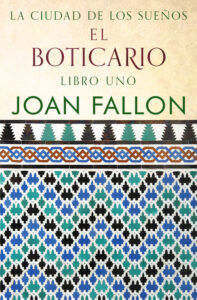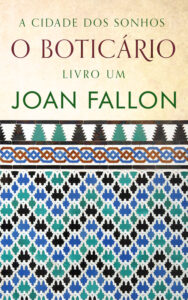The road to Malaqah was long and dusty but she hardly noticed it; her heart was too full. At first she had believed Baba when he said that leaving Ardales was a good thing for her and the children, but now all she could think was that with every step she was moving further away from her beloved. She hoisted the baby onto her other shoulder, kissing his cheek absent-mindedly as she did so.
Maryam tugged at her skirt and whispered, ‘Mama, when will we get there? I’m tired.’
‘Soon, my little one. Soon.’
‘Here, child, come and have a ride on the donkey,’ said Makoud, taking his granddaughter’s hand and swinging her onto its back.
Her father was smiling and looked happy to be on his way at last. Baba had been impatient to leave, but they had to wait out the period of mourning; by law Aisha should have remained in her mother-in-law’s house until iddah was finished—four months and ten days—but the imam had allowed her to go back to her father because of the contagion. They had burnt all the bedding and most of the clothes that were in her mother-in-law’s house—those had been Qasim’s instructions. More people would have died if it hadn’t been for his intervention; he set up a system of quarantine. He said it was the only way to stop the disease spreading. All the families who had the sickness in their houses were forbidden to go to the communal well, to the market and the mosque; instead people would take food and water to them and leave it outside their houses. The schools were closed and most people stayed within their own homes, frightened of infection. Aisha hadn’t seen her parents for months, not until the dead had been buried and she’d been declared well and not contagious. Now all she had were her widow’s robes: a white djubba, a veil, a grey djellaba and her wedding dress—she couldn’t bring herself to burn it. But none of that mattered now. She tried to stop thinking about Daud; tried to remove those last images of him as she’d washed his emaciated body, closed his eyes and lips—lips that had once tasted so sweet—and wrapped him in his shroud. He now lay in the cemetery in a shallow grave so that he could continue to hear the imam calling the faithful to prayer, surrounded by the friends and family who’d suffered the same fate. She bit her lip in anguish; she should be there with him, not crossing the country in order to start a new life.
‘What is it, daughter?’ asked Abal, her mother. ‘Why so sad?’
‘It’s nothing, Mama.’
‘Would you like me to carry the baby for a while?’
Aisha gratefully handed little Imran to his grandmother. Her back ached. She stopped a moment to sit on a rock and remove a stone from her sandal. She must force herself to stop thinking of the past; she would never be able to move forward unless she did so. If this was to be a new beginning then she must put her children first and think of the future.



